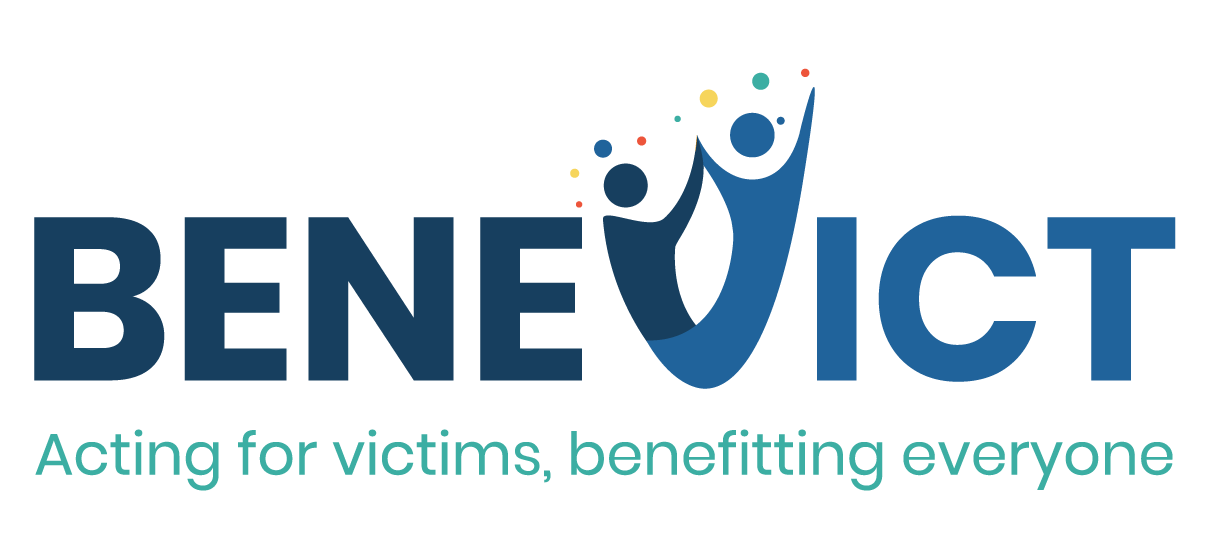The BeneVict project is dedicated to developing evidence base for advancing rights of victims of crime and influencing the future of victims’ rights in the EU as well as enabling a broad pan-EU partnership to raise to the challenge of improving victims’ realities across the EU.
Since 2012, the EU Member States were expected to implement Victims’ Rights Directive and continue developing services for victims of crimes. Since 2016, infringement proceedings against 21 Member States have been instigated for the failure to transpose the Directive. In most MSs, victims’ experiences still need a lot of improvement. There is still very limited evidence that can help us to understand the basic elements of victimisation: its scope, impacts, costs and benefits of victim support. In 2019, the VOCIARE project, managed by VSE, identified a number of issues in the practical implementation of the Victims’ Rights Directive. Building on the challenges identified in the VOCIARE project and expanding its objectives far beyond addressing them, the BeneVict project aims to support the European Commission in its implementation of the Victims’ Rights Strategy 2020-2025 and the crafting of the future of victims’ rights in the EU.
A rapid 26-country practical implementation analysis will contribute to the understanding of what type of future action is needed to improve implementation of victims’ rights – be it an amendment to the Victims’ Rights Directive, a new legislative instrument at the EU or the MS level, a policy initiative, or other appropriate type of action. The project intends to gather evidence base regarding the implementation of the Victims’ Rights Directive across the EU and also try to identify the type of evidence that is not being collected, although it should be. Achieving this objective will serve to inform and influence the forthcoming EU and MSs legislative and policy action in the field of victims’ rights. In addition, through a gap analysis, the project will also enable an understanding for the stakeholders, including the EU, Member States, and professionals, regarding the evidence base that is needed, but is not available, to better understand the issues of victimisation, victim support and the implementation of victims’ rights.
Finally, for the first time ever in the EU, the project will quantify benefits of victim support in four selected MSs, in an effort to look into the cost of victimisation and develop an argument for an investment into victim support. BeneVict project is built as a pan-EU collaborative effort, bringing together experts from 26 countries, to promote collaboration and emphasise that shared values are best reaffirmed through joint initiatives.
If you have any project-related questions, please do not hesitate to reach out to Maria Georgiou at m.georgiou@victimsupporteurope.eu or Oleksandra Boychenko at vse@victimsupporteurope.eu



